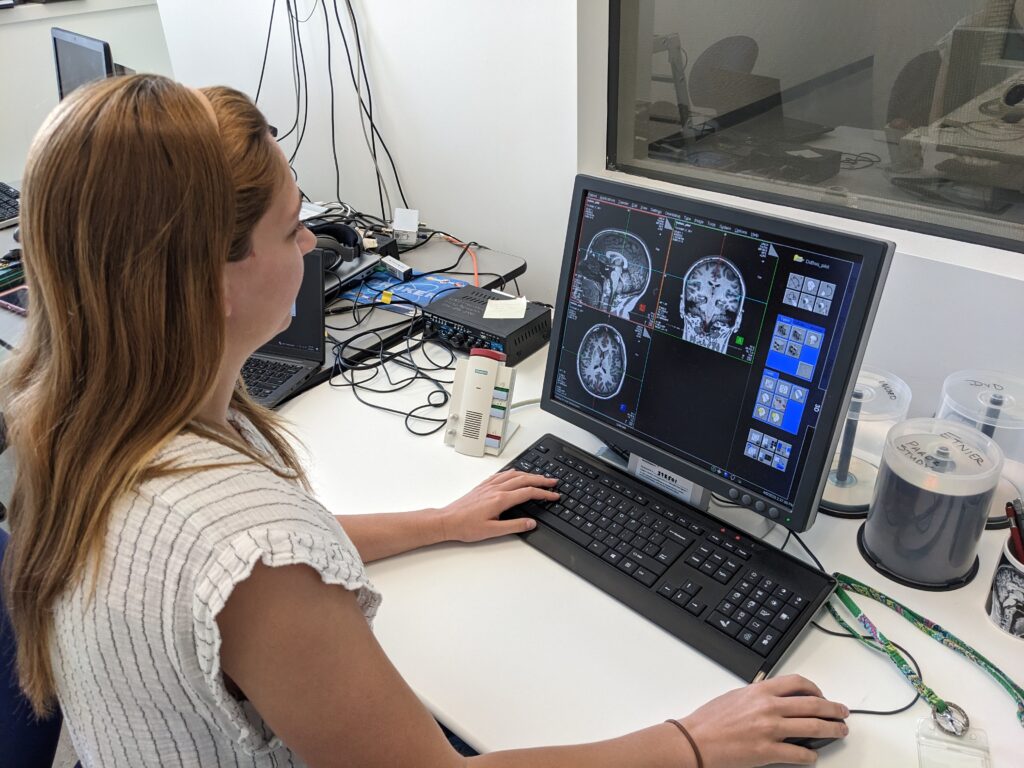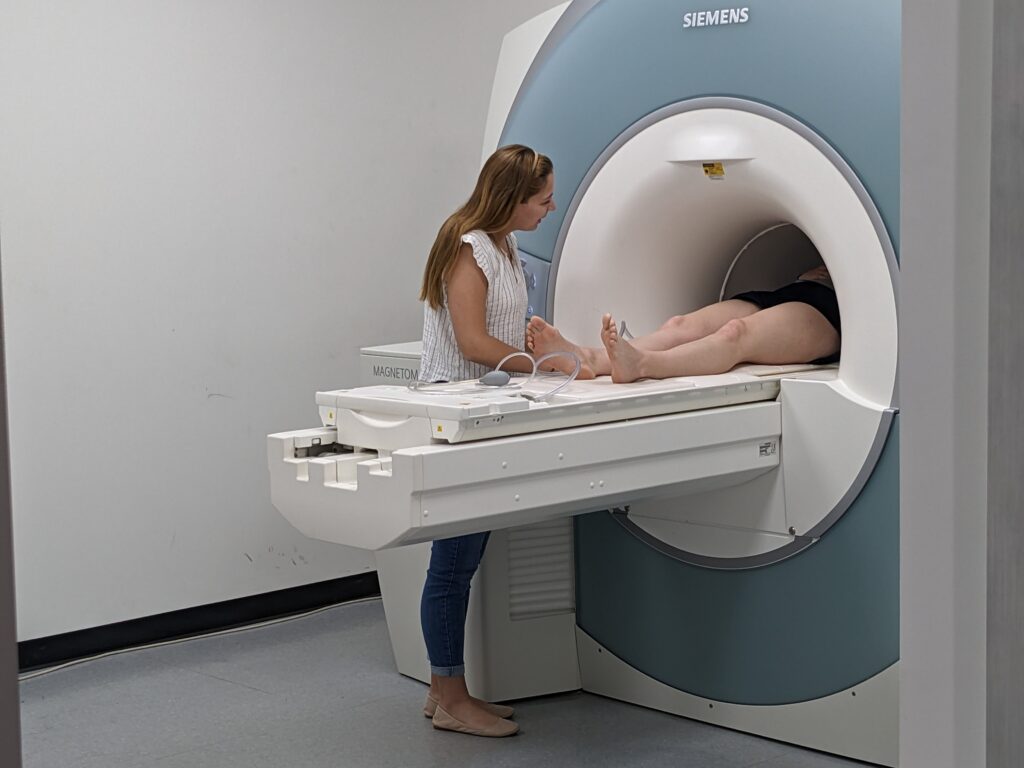PAC Lab Article Written By Brittany Armstrong
Dr. Sam DuBois, a dedicated member of the Physical Activity and Cognition Lab, recently earned her Ph.D. in Kinesiology under the mentorship of Dr. Jenny Etnier. Dr. DuBois has been an invaluable asset to the lab, recognized by research participants for her kindness, admired by classmates for her reliability, and respected by faculty for her intelligence.
In her final year of graduate studies, Dr. DuBois undertook her dissertation—a comprehensive research project based on her own questions. This accomplishment involved designing and conducting her own study, authoring a 50,000-word paper, and successfully defending her work in an oral examination.

Dr. DuBois’s dissertation, titled “Acute Exercise and Pattern Separation-Dependent Mnemonic Discrimination in Older Adults: An fMRI Investigation,” investigates the effects of moderate-intensity exercise on the mnemonic discrimination performance and brain-wide activity of older adults. Below, Dr. DuBois explains key terms from her title, discusses the significance of this research, and shares her study’s findings.
Definition of Terms
- Acute Exercise: A single session of exercise.
- Mnemonic Discrimination: Episodic memory is a type of memory that involves the recollection of personal experiences or events, including the time and place they occurred, such as remembering details of your wedding day. Mnemonic [ni-mon-ik] discrimination is a crucial component of episodic memory that allows us to differentiate a current event from memories of similar past events.
- fMRI: fMRI stands for ‘functional magnetic resonance imaging’ or ‘functional MRI’. This type of MRI scan can show which areas of the brain are most active.
Importance of Study
As people age, mnemonic discrimination declines. This makes older adults more likely to misremember details of routine events, such as taking medication or recalling where they parked. Therefore, effective strategies to reduce the severity of age-related declines in mnemonic discrimination are needed to support the daily functioning of older adults.
Physical activity has been shown as a lifestyle factor that can benefit cognitive function in older adults, helping to protect brain regions that facilitate the neural processes that underlie mnemonic discrimination. However, research using precisely designed mnemonic discrimination tasks sensitive to these age-related changes remains limited.
Since the rapid physiological responses to a single session of exercise (acute exercise) may accumulate over time to create long-term brain and cognitive changes, acute exercise studies that use mnemonic discrimination tasks are ideal. They can address the existing gap in the literature and guide the development of chronic exercise programs aimed at age-related declines in mnemonic discrimination.
Thus, the current study included 26 physically active, older adults (average age = 65.5) who attended 2 lab visits approximately 1 week apart.
- Completed a mnemonic discrimination task during a functional MRI scan after seated rest (20 minutes of resting while sitting on a stationary bike)
- Completed a mnemonic discrimination task during a functional MRI after acute exercise (20 minutes of moderate-intensity aerobic exercise riding a stationary bike)
Results and Findings
Results showed that performance on the mnemonic discrimination task following acute exercise and seated rest did not significantly differ. However, functional MRI scans showed that brain activity in specific regions was reduced following acute exercise compared to seated rest. Specifically, during task trials that required mnemonic discrimination, where participants viewed lure objects that were similar to previously seen objects, brain activity in regions of the ventral visual cortex that are important to episodic memory was reduced following acute exercise compared to seated rest.
These results suggest that although acute exercise (a single session of moderate-intensity exercise) may not enhance behavioral mnemonic discrimination in older adults, it can improve neural efficiency in ventral visual regions as fewer neural resources are needed to maintain the level of mnemonic discrimination performance. Thus, acute exercise may induce short-term, beneficial changes in the function of brain regions that support mnemonic discrimination.
Future research is needed to understand how acute exercise-induced change in the function of ventral visual regions may relate to changes in brain function and mnemonic discrimination performance of older adults after chronic exercise interventions.


Dr. DuBois’s work adds to a growing body of research on the benefits of physical activity for cognitive health in aging, highlighting how even a single session of exercise can positively influence neural efficiency in older adults. While her findings indicate that acute exercise may not immediately enhance mnemonic discrimination performance, the reduced neural activity in key brain regions suggests that exercise may support cognitive function by requiring fewer resources to achieve the same level of performance.
Dr. DuBois completed her dissertation and graduated from the UNC Greensboro Department of Kinesiology in May 2024. She is currently an Assistant Professor in the Department of Public Health and Exercise Science at Appalachian State University. If you have any questions about her research, you may contact her by email at duboissl1@appstate.edu.


